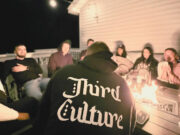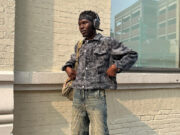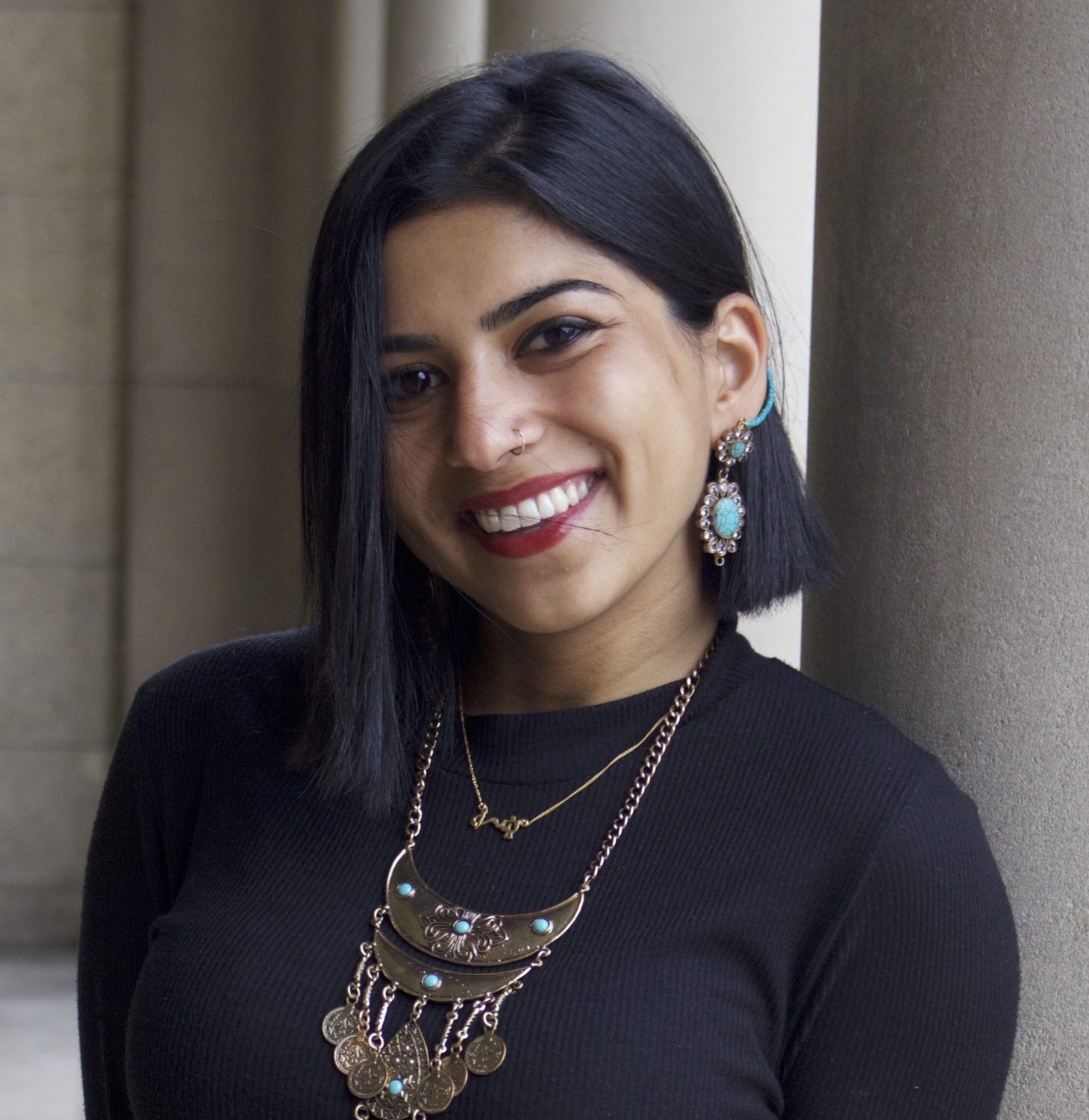I did not expect to sit through a white man crooning about Syrian children longing to be held in his arms at my college commencement ceremony. But I did graduate from the University of Wisconsin-Madison.
Most students at UW-Madison care about trees, follow Vox on Twitter and have two black friends, plus or minus one pseudo-acquaintance they interviewed for an ethnic studies class project. It seems that as a result, the campus has earned accolades such as “liberal bubble,” “overwhelmingly blue,” “one of the most liberal public research universities in the nation” and “heartland for progressive politics,” among others.
If my mediocre efforts were met with such disproportionate praise, I would have graduated with a 6.7 GPA.
I’ll say this — it’s not an entirely unfounded myth that UW encourages left-of-center politics. The school boasts a history of activism and many students find space at the university to drift from the small-town conservatism they have always known.
But claiming the average student is some sort of champion for progressive ideas requires impressively selective attention, and a firm commitment to ignoring resounding criticism from marginalized communities’ repeated calls for revaluation, disassembly and reform. To suggest the administration adheres to socially liberal principles such as racial equity, social justice and sustainability is an even greater departure from the truth.
These distortions of reality — let’s call them by their name — are not harmless misconceptions. They not only enable, but embolden, an apathetic, misinformed and self-congratulatory campus collective.
By and large, white liberal students at UW take great pride in their politics despite doing very little work outside of simply failing to be conservative. They are activists for not voting for Donald Trump. They don’t not support gay marriage. They are ninety-nine percent on board with “Yeah, police brutality is totally a thing — did you see what I retweeted?” They’ll show out for the marijuana legalization parade and March for Our Lives, but disappear to Michelangelo’s during workshops, rallies and lectures about dismantling the prison system or demilitarizing the police.
They will share statuses from women of color — doing educational labor on social media for no compensation — about the obscenity of UW honoring a man with a statue atop Bascom Hill who ordered the murder of 38 Dakota men. Weeks later, beaming from the lap of their beloved Abe Lincoln, their thumb and index fingers form a “W”.
“By and large, white liberal students at UW take great pride in their politics despite doing very little work outside of simply failing to be conservative. They are activists for not voting for Donald Trump. They don’t not support gay marriage. They are ninety-nine percent on board with ‘Yeah, police brutality is totally a thing — did you see what I retweeted?’ They’ll show out for the marijuana legalization parade and March for Our Lives, but disappear to Michelangelo’s during workshops, rallies and lectures about dismantling the prison system or demilitarizing the police.”
If you’re white, all you really have to do to be considered a progressive student at UW is shrink into the crowd and occupy the negative space. With your Bernie 2018 t-shirt and Black Lives Matter laptop sticker.
My mom worried about me throughout my undergraduate years, insistent I stay away from Trump voters, pleading I not to talk so openly about my brownness and with such contempt about whiteness. I tell her now, few of most disturbing moments on campus involved far-right students. To encounter their hatred was always distressing but never unexpected — I know where racists stand. To a certain extent, they were not my problem.
My white, liberal friends were the problem. My progressive, Hillary-voting, weed-smoking, thrift-shopping, #blm-in-twitter-bio friends were my problem. My friends who told me not to get so emotional all the time, that’s why brown and black people aren’t getting anywhere, were my problem.
While left-leaning parties’ espoused values may display greater consideration for the livelihoods of underrepresented communities, these principles are often manipulated, left bruised and distorted. We are far too prepared to accept that liberal people are rinsed of internalized prejudices by virtue of their ballot alone.
UW should compel us to question the extent to which liberal politics correlate with decentralizing whiteness. Evidence on the UW campus and experience with this administration suggests no correlation at all. The more fiercely someone believes they are unproblematic, the more violent is their reaction to the idea that perhaps, despite their best efforts, they are.
The university suffers a white liberal cognitive dissonance epidemic which necessarily eliminates the possibility of progress. If the administration and its students refuse to see themselves as part of the problem (and they do), they immediately isolate themselves from being an integral part of the solution. In constant need of affirmation that they are the glorious exception, beacon of hope, nothing like the average white person, the burden of validating and dealing with their white guilt fell on the shoulders of underrepresented students time and again.
Confronting resistance from white, liberal peers and faculty posed a unique trauma, inflicting self-doubt and self-blame. I know this person is on my side … I know they aren’t racist … I’m being too sensitive. Should I say anything? What if I’m too harsh and they aren’t on my side anymore?
How devastating that we tolerated this painful ignorance because we knew we couldn’t afford to lose anyone from our side.
Almost in an act of cyclical harmony, four years culminated in a commencement ceremony rejoicing the continued success of white liberalism as a veil to conceal the destructive, racist, white supremacist principles that uphold UW.
The same chancellor reflecting on Dr. Martin Luther King Jr.’s visit to Madison refuses to remove the names of Ku Klux Klan members from the walls of Memorial Union. The keynote speaker, with his white savior complex, painted a romantic portrait of Syrian refugee children — subject to the terrors and cruelty of a war zone — as “happy,” dreaming the same dreams we do.
A white woman who stood in opposition to legislation calling for divestment from private prisons and the apartheid state of Israel — the oppression of Black, Brown and Indigenous souls across the world — was provided the platform to speak about feeling marginalized on an 84% white campus.
Black women at UW have been spat on.
Black men have been subject to police brutality, students dressed as President Barack Obama in a noose at a football game were protected by UW claiming freedom of expression, and Indigenous women, who face higher rates of sexual assault than any other demographic, were heckled while attempting to heal with their community.
UW pays attention to its students of color on one day of the year — the day we become useful — to prove to Camp Randall straight from the JumboTron that this is still your Midwest liberal haven, and UW turns to embrace racial diversity.
But for the rest of the year, UW turns its back on racial equity.
“This is the danger of white liberalism. These are not alt-right ultra-conservatives, and I am confident these individuals feel they are doing no harm — because most white people learn about injustice in a manner which absolves them from any personal fault, believing education on the issues will suffice. They are protected from the reality that they themselves are the issue.”
Calls for desperately needed cultural centers are met with thin, white lies about a lack of funding or inability to “choose” between minorities. During my junior year, I spent countless hours with a group of Muslim students, as we implored the administration to grant just one space on this 940-acre campus for Muslims — only to receive a continual denial on the grounds that UW cannot demonstrate any affiliation or preference for a religion.
One year later, a beautiful, multi-million-dollar church — the 15th in walking distance across campus — opened up adjacent to the UW Bookstore. Call it off-campus if you want, but let’s not play games.
This is the danger of white liberalism. These are not alt-right ultra-conservatives, and I am confident these individuals feel they are doing no harm — because most white people learn about injustice in a manner which absolves them from any personal fault, believing education on the issues will suffice. They are protected from the reality that they themselves are the issue.
I am grateful for my time at UW, but don’t credit the institution. Rather, I am grateful to have met students with the resilience to repeatedly challenge the fabricated “liberal” framework which was used as a tool to silence our demands. And I would advise all students seeking their heartland for progressive politics, especially students of color, to think twice about just how much emotional labor they are willing to expend.


































